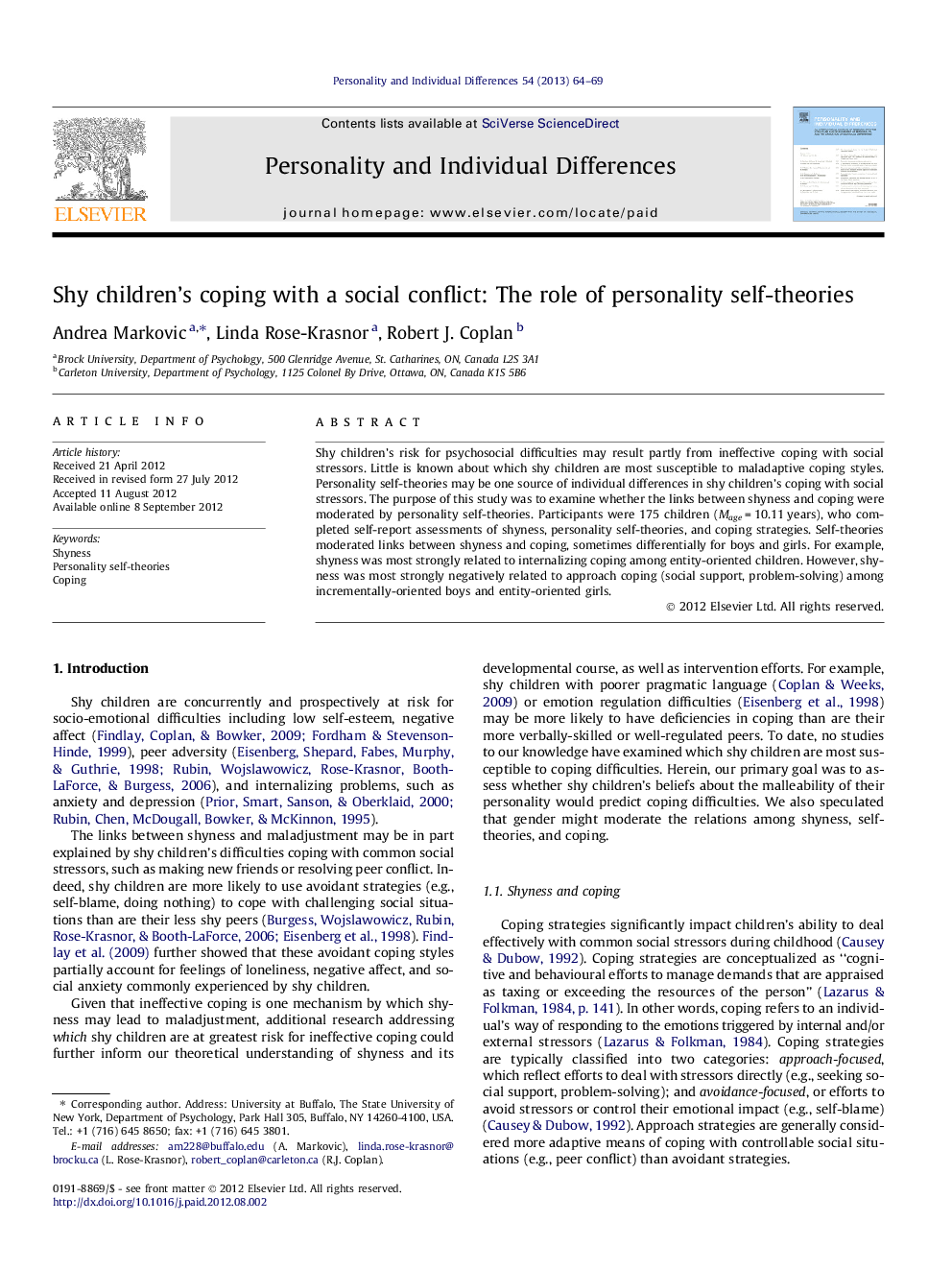| Article ID | Journal | Published Year | Pages | File Type |
|---|---|---|---|---|
| 890916 | Personality and Individual Differences | 2013 | 6 Pages |
Shy children’s risk for psychosocial difficulties may result partly from ineffective coping with social stressors. Little is known about which shy children are most susceptible to maladaptive coping styles. Personality self-theories may be one source of individual differences in shy children’s coping with social stressors. The purpose of this study was to examine whether the links between shyness and coping were moderated by personality self-theories. Participants were 175 children (Mage = 10.11 years), who completed self-report assessments of shyness, personality self-theories, and coping strategies. Self-theories moderated links between shyness and coping, sometimes differentially for boys and girls. For example, shyness was most strongly related to internalizing coping among entity-oriented children. However, shyness was most strongly negatively related to approach coping (social support, problem-solving) among incrementally-oriented boys and entity-oriented girls.
► We examine the role of personality self-theories on shy children’s coping. ► Shy entity children report the greatest use of internalizing coping. ► Shy entity girls and shy incremental boys report low use of approach coping. ► Shy children’s coping appears to depend on personality self-theories and gender.
